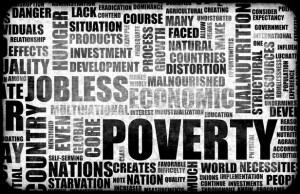 Caring about people and their rights and needs may make you interested in pursuing work with victims of social injustice. Although there are many professions you could pursue that would allow you to work with people in that kind of need, the social work profession may be one of the best. Social work jobs often provide opportunities to work in communities beset by many issues of social injustice, and the profession as a whole considers social justice an important value behind the work it promotes.
Caring about people and their rights and needs may make you interested in pursuing work with victims of social injustice. Although there are many professions you could pursue that would allow you to work with people in that kind of need, the social work profession may be one of the best. Social work jobs often provide opportunities to work in communities beset by many issues of social injustice, and the profession as a whole considers social justice an important value behind the work it promotes.
Peace and Social Justice Issues Within the Profession
In fact, the National Association of Social Workers (NASW) has a Code of Ethics that emphasizes their commitment to issues of social justice as well as a policy statement about peace and social justice issues and the commitments of social workers to try to promote equity and human rights among various communities. The Code of Ethics was originally adopted in 1996 and was revised in 2008. It enumerates some of the core values and ethical standards and principles of the social work profession regarding social justice issues.
The NASW is especially committed to social workers striving to help people in three areas: the prevention of torture, the alleviation of poverty and the prevention of human trafficking. They promote education and initiatives to encourage social workers who work both internationally and domestically on issues such as these.
Social Work Jobs Involving Poverty Alleviation
Social workers have a long history of working with victims of social injustice, especially those who find themselves marginalized due to poverty and its effects. Whether people live in relative, moderate or extreme poverty, they can find themselves vulnerable and in need of help to find the resources they need, including adequate food, shelter, clean and safe drinking water, education and other basic needs. Poverty can effect any individual or group, but certain groups of people are especially vulnerable in the face of it, including the elderly, families with young children, disabled people, and refugees and migrants, all populations that can be well served by social workers advocating on their behalf.
Some of the jobs or roles that social workers may play in helping to alleviate the effects of poverty include community organizing and development. Among other things, this may include advocacy work for victims of domestic abuse or those in need of mental health resources, job training and placement. Social workers, by their training and education, are often uniquely equipped to connect people in need with the resources they lack. In addition to connecting people and resources, social workers can work to help people better understand their own needs and to find ways to change their behavior and seek professional services.
While there are many kinds of jobs that can promote social justice, including healthcare and legal advocacy, social work is one of the professions that offers expansive opportunities to help vulnerable individuals and people groups. If you are attracted to the idea of working with victims of social injustice, you may want to consider pursuing a social work degree, such as a bachelor or master of social work (BSW or MSW).
